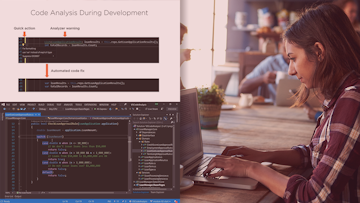
Application source code can often deteriorate in quality as projects grow in complexity. In this course, Code Analysis in Visual Studio 2019, you will learn how to use Visual Studio to analyze, enhance, and enforce the quality of your source code. First, you will learn how to work with the built-in Visual Studio analyzers to improve your code. Next, you will see how to install and configure additional analyzers for more advanced analysis. Finally, you will explore command line tooling and build pipeline integration, code metrics, and even get started creating your own analyzer. By the end of this course, you will have a better...
Read more
Good to know
Save this course
Activities
Career center
Software Developer
Software Engineer
Quality Assurance Analyst
Software Test Engineer
Data Analyst
Business Analyst
Project Manager
Technical Writer
Software Architect
Computer Scientist
IT Consultant
Web Developer
Database Administrator
Systems Analyst
Technical Support Specialist
Reading list
Share
Similar courses
OpenCourser helps millions of learners each year. People visit us to learn workspace skills, ace their exams, and nurture their curiosity.
Our extensive catalog contains over 50,000 courses and twice as many books. Browse by search, by topic, or even by career interests. We'll match you to the right resources quickly.
Find this site helpful? Tell a friend about us.
We're supported by our community of learners. When you purchase or subscribe to courses and programs or purchase books, we may earn a commission from our partners.
Your purchases help us maintain our catalog and keep our servers humming without ads.
Thank you for supporting OpenCourser.


